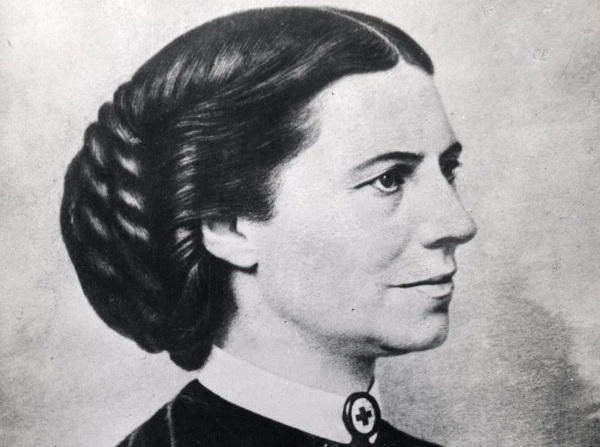Clarissa Harlow Barton came from a strong caring family. Since Clara, was very shy as a child, she was always unable to do her best work. She was a very bright and and excellent reader. She also had a tom-boy side to her which her mother tried to change, however, Clara was always true to herself. Mentoring of Clara included learning to be a teacher. Clara attained a career as an excellent teacher for several years, working with over 600 students. Clara’s efforts raised $4000 to build a new school for the large student population. It was believed that it was un-befitting for a women to hold the position as head of the school. So, she was demoted to “female assistant,” and took the change very hard. She suffered mentally from unfairness lack of appreciation and moved to Washington D.C., and got a job in the U.S. Patent Office, being the first woman to receive a clerkship with a salary equal to a man doing the same work. Clara’s position and substantial salary were once again frowned upon and there was opposition to women working in government offices. She was demoted to a copyist, left the job for a few years and even returned as a temp copyist since she was dedicated to being in government service some way and some how.
Clara found her way to nursing soldiers during the Civil War, having nursed her brother at home as child. Clara was known as the “Angel of the Civil War” and did what she could to care for soldiers on the battle field. She deliver supplies, cleaned field hospitals and applied dressings to wounds. She had a following at the time of supporters as was appointed “lady in charge” of the hospitals. After the war, she discovered letters written by family members who had no idea what became of their loved ones. She got permission for President Lincoln in an official capacity to answer the letters and find the missing soldiers. She was able to bring closure for 13,000 soldiers’ families.
Later, Clara Barton founded the Red Cross through her efforts and achieved recognition as a great humanitarian and one of the early suffragettes through her history of employment in education and government positions. Despite, her sadness, exhaustion and disappointment throughout her life, her perseverance allowed her to live a long a and full life of 91 years.
There is increased interest in the history of Civil War women like Clara Barton as we commemorate 150 years of Civil War history. Below is a link to the National Historic site at the home of Clara Barton.
http://www.nationalparks.org/explore-parks/clara-barton-national-historic-site

